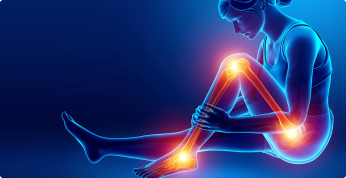Paralysis


Paralysis symptoms and causes
If the nerve signals and muscles are disrupted, people might experience paralysis. Paralysis refers to the permanent or temporary loss of voluntary movement within the muscles in a particular body part or area.
It is of different types, namely; localised, partial, generalised, and complete paralysis. The quadriplegia is where all the limbs are affected, while in the paraplegia, both the legs are affected. There are several paralysis attack symptoms which people sense.
The loss of voluntary muscle function in a part or more of the body is known as paralysis. It is the result of damage caused to the nervous system. The nervous system consists of two different parts, which are as follows:
- • CNS: Also known as the central nervous system. It involves the spinal cord and brain.
- • PNS: The peripheral nervous system consists of the nerves present outside of the central nervous system.
The neurons or nerve cells present in the PNS are responsible for performing multiple functions. For example, motor neurons help in regulating the movement of muscles. The sensory neurons are responsible for sharing or transmitting information to the CNS.
This information contains the pain, pressure, temperature, and so on. If any nerves, brain or spinal cord get damaged, the nerve signals get interrupted. It is the primary cause of the paralysis attack.
Paralysis Attack Symptoms
The people who get paralysis attacks would not be able to move the entire or partial part of the affected body. The location of the injury accompanies the loss of the sensation. Different people sense different symptoms accordingly. It can vary depending on several factors, such as the location of the injury, the type of the issue, the cause of the injury, and more.
The major symptoms that almost all the suffering people might feel are as follows:
- • Muscle weakness
- • Stiffness
- • Numbness in the affected muscles
- • Muscle atrophy or visible signs of losing muscles
- • Pain in the affected muscles
- • Involuntary spasms or twitches
According to some studies, many causes of paralysis are commonly found among people. They can sense the paralysis attack symptoms. In the present time, the most common causes of paralysis attacks are as follows:
- • Spinal cord injury
- • Multiple sclerosis
- • Stroke
- • Cerebral palsy, and so on.
The damage to the nervous system is responsible for muscle weakness and paralysis. It can be caused due to any health issues that occur in the human body. The nervous system is responsible for performing multiple tasks within the body.
A good system sends the information between the brain and the rest of the body back and forth. Therefore, the nervous system needs to be healthy. The signal travels from the brain down to the spinal cord. It is then passed into the peripheral nervous system throughout the body.
The peripheral nervous system is responsible for the regulation of many functions. Some of them are as follows:
- • Voluntary muscle movements (walking, moving, chewing, etc.)
- • Automatic functions (for example- digestion, breathing, etc.)
- • Sensory functions (for example- temperature, pain, pressure observation, and so on).
The overall health and quality of life of a person can be affected by damage to any part of the nervous system. Mentioned below are some of the major causes through which the nervous system gets damaged, resulting in muscle weakness or paralysis.
- • Infections like polio, meningitis, encephalitis, etc.
- • Motor neuron diseases, for example, ALS and primary lateral sclerosis
- • Inherited disorders
- • Spinal muscular atrophy, hypokalemic or hyperkalemic partial paralysis
- • Brain tumour
- • Spinal cord tumour
- • Spina bifida which means the incomplete development of the spine, brain or spinal cord
- • Autoimmune diseases such as Guillain-Barre syndrome and lupus..etc…
Stroke sufferers who receive emergency first aid treatment and come to our treatment center within 15 days are given special treatment for brain to get rid of stroke quickly without Physiotherapy or drugs